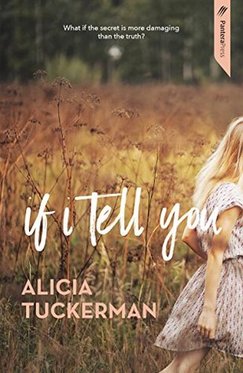
WARNINGS: Homophobic behaviour and comments, death, bullying
RATING: 3.25 stars
GENRE: Young Adult Contemporary Fiction (Australian)
NOTE - I discuss a huge spoiler towards the end of this review because I think it's a trope that some readers will want to know about, and I think we need to keep talking about that trope. Especially in books written for our youth.
I really wanted to give this story more stars as I moved through the really lovely middle chapters, but the opening and the ending influenced my overall thoughts. That said, 3 stars is still decent. It means I liked it, most of the time, but there were some things that came up that really made it difficult for me to love it.
This is a pretty solid YA fiction set in a rural Australian town, something I applaud both the author and publisher for exploring. The depth of the homophobia in Twin Creeks was difficult to read about, and certainly a lot worse than I experienced living in Armidale as a student. Be aware that you're in for some discomfort at times - because homophobic bullying is definitely uncomfortable. The overall messages and themes are about hope and acceptance and - as it’s mentioned many times - personal truth. These are great themes, but I found myself forgetting about how powerful they were in the wake of how the story ends.
The atmosphere of the town, general characterisation, and writing is all very strong. Pantera Press is a publisher I’ll continue to look to for modern Australian voices and I hope that their future LGBTIQ+ projects are as well-written as this, but perhaps a little wiser in terms of their underlying problems.
*
*
MINOR SPOILERS AHEAD
It’s a tiny thing, but I don’t understand the rather American-Hollywood-Film style aspects set in the school. Australian teachers in a public school can’t just be suspended on the spot by a principal. I think even in a private school there would need to be some sort of process - but in a public school it's actually REALLY hard to fire a teacher, especially one that is permanent. Teachers also don’t make new students introduce themselves to the whole class when they turn up, nor do they tend to take students out for dinner and hug them, or tutor them privately on their own in a room without others around. All of that is a recipe for disaster for a teacher. This is all stuff that happens in movies set in the US (not even in schools, in movies) and I just find it mildly distracting in a book that’s looking to assert its Australian roots. I’m a high school teacher so that’s probably the only reason those details bothered me and, really, they’re minor.
EVEN BIGGER SPOILERS - DISCUSSION OF A TROPE THAT I WISH THIS BOOK HADN'T USED
*
*
*
Really. It's a huge spoiler.
*
*
*
The ending frustrates me because, in my opinion (and I'm not pretending to be right about everything), it seemed like unnecessary emotional turmoil to kill off Phoenix - and it served the purpose to undercut all of the messages about love and hope the novel was exploring. I know people die in real life, no matter their age, but deaths of gay characters are a topical issue in pop culture at the moment and it didn't seem worth it to do that with Phoenix.
There are already SO many books/films/TV shows that kill off our gay girls and the first LGBTI+ novel that Pantera prints adds another notch to the “bury your gays” trope. I was so disappointed.
I felt like I was reading ‘A Walk to Remember’ (Nicholas Sparks) in the last few chapters (and no, that's not a compliment from me, sorry...), when before that the book was really engaging and powerful. I wanted this to be a novel that Australian English teachers would order for their faculties, that I could run to my teacher-librarian and rave about as a new purchase for our students. But there must be something out there that has the same themes without the need to kill off ANOTHER lesbian in our fiction.
Let’s have more disabled characters, more women of colour, more diversity in every way...but the one thing we don’t need is more dead lesbians...there are disproportionate numbers of those in the world of popular culture and literature already and it just isn't necessary to keep doing it.
That said, if you can handle the death of a major character better than I can, I’d recommend the book. It’s a well-executed coming out story with some gorgeous moments of acceptance, realisation, and honesty both with one's self and with others. I feel like Willow when she watches Moulin Rouge, I just needed to stop a few chapters before the end and it would have been marvellous.


 RSS Feed
RSS Feed

